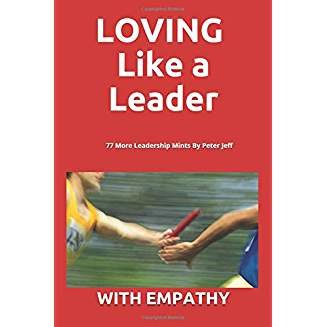More than 180 chief executive officers leading some of the largest companies in America last week virtually endorsed the key message in LOVING Like a Leader, the second book in the 3-book Leadership Mints Series:
A caring and sharing mindset (love in a business context) can engage all stakeholders — from employees to customers to suppliers etc — to be more productive, more profitable and more innovative.
 No way. No how. Many business owners still say it’s all about the money-accruing it, investing it and leveraging it. In fact, that money-is-everything mindset has been the prevailing opinion of business leaders for more than 20 years (since 1997).
No way. No how. Many business owners still say it’s all about the money-accruing it, investing it and leveraging it. In fact, that money-is-everything mindset has been the prevailing opinion of business leaders for more than 20 years (since 1997).
But on August 19, 2019 — a date that will go down in the business history books and transform the way colleges teach business administration and leadership development in the future , the Business Roundtable signed and issued a Statement on the Purpose of a Corporation.
In the process this key influential corporate lobbying group comprised of chief executive officers from major corporations in America (like Amazon, Walmart) redefined shareholder value in more than monetary terms and recanted economist Milton Friedman’s dictum in 1970 that corporations exist to maximize profits.
“Each of our stakeholders is essential. We commit to deliver value to all of them, for the future success of our companies, our communities, and our country,” the Business Roundtable Statement says.
Now leaders in the future might consider those stakeholders — employees, customers, suppliers and the communities they live and work in — SHARE holders. They all have a share in the corporation’s bottom line success. They all must be treated equally with dignity and respect and fully factored and collaboratively considered in all decisions.
Adding a 5th “P” — PEOPLE — to the traditional 4 P’s model of business acumen and marketing know-how (Price, Production, Place, Promotion), corporate leaders in the future are more likely to see employees as assets to be developed, nurtured and invested in not as an expense to be contained. Take it from Bob Chapman, Continue reading